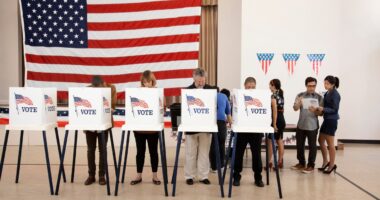One observation I’ve made over my life is that there is nothing like personal experience to educate oneself about various situations in life. In my special education career, for example, it was interesting to watch politicians who were against government spending on social programs become advocates for special education programs after they had a child or grandchild with disabilities. Then they became advocates for government spending for children and adults with disabilities that their family members needed or would need in the future. Unfortunately, their personal experience in this area did not generalize to supporting other social programs like child care and so on. I often wondered, if they had a family member who became addicted to drugs, would they become supporters of treatment programs? It can be difficult to understand the suffering of others without experiencing the same. According to Copilot.com, “Empathy is the ability to recognize, understand, and share the thoughts and feelings of another person … It involves experiencing another person’s point of view, rather than just one’s own, and enables prosocial or helping behaviors that come from within, rather than being forced.” President Joe Biden lost his wife and infant daughter in a car accident years ago. His two young sons, also in the car, survived, one with a broken leg and the other with a fractured skull and brain damage. When he visits people who lost family members from mass shootings or natural disasters, he can empathize with their pain and tell them, from personal experience, they will make it to the other side of that pain. This brings me to a column by USA Today’s Mike Freeman. Freeman is a Black man who understands far better than me what it is like interacting with police as a Black man. While negative experiences with the police by some Black men have been documented, many white Americans are skeptical of their concerns or don’t care. They mock organizations like Black Lives Matter that have tried to focus attention on this issue and change police policy. Freeman wrote about the outrage over the arrest of the world’s No. 1 professional golfer, Scottie Scheffler, a white man, by the Louisville Metro Police Department. Scheffler was arrested by Det. Bryan Gillis at around 6:30 a.m. on felony assault charges, reckless driving, criminal mischief and disregarding traffic signals because he, according to Gillis’s report, “refused to comply” with directions when asked to stop his car and pull over. According to Gillis, Scheffler “accelerated forward” in his car and Gillis was “dragged to the ground” suffering “pain, swelling, and abrasions to his left wrist.” When Scheffler stopped his car, Detective Gillis removed him from the car, pushed him against the car, handcuffed him, and arrested him. Scheffler said that, after showing police officers who were part of the accident detail his credentials, he “was proceeding as directed by police officers” into the parking lot of the Valhalla Golf Club where he was scheduled to play. He said he was unaware of a fatal accident beyond the entrance to the golf club. Gillis was not part of the traffic detail. Shortly after the arrest, video footage released by the police showed a different picture from the one Gillis outlined in his report. Interestingly, Gillis did not turn on his body camera as required by his department. Luckily for Scheffler, as in so many of these cases, someone else recorded the incident and Scheffler was released, without bond, at 8:40 a.m. A little history might be helpful. After Breonna Taylor was killed by members of the Louisville police in 2020 during a botched drug raid, the Justice Department investigated and reported, “For years, LMPD has practiced an aggressive style of policing that it deploys selectively, especially against Black people, but also against vulnerable people throughout the city.” Video evidence from the scene near the golf club shows that Scheffler pulled over into a parking lot as directed and stopped. It also showed Gillis reaching into Scheffler’s car as he drove into the parking lot. This is when Gillis bruised his arm. Officers asked to review the video wondered why Gillis was reaching into Scheffler’s car while it was still moving. Also, there is no video evidence of Gillis being “dragged” as he reported. After a quick investigation, all charges against Scheffler were dropped. Golf fans around America, however, were upset as Scheffler is noted to be a mild-mannered person. Fans could not believe what they read in the police report. In his column, Freeman welcomed the examination of golfers, most of whom are white, on “how police departments operate and how some of them, by golly, abuse their power.” He added, “To those fans who are just now realizing that cops can go too far…to those digesting how some cops are on power trips…well, to all of you, I say: welcome to the party, pal.” Indeed, Freeman points out that many people who believe the police “at all costs” when Black men are involved, “are unable to see the irony of their position” regarding Scheffler. Also, consider that Scheffler wasn’t choked, beaten, and didn’t have a knee pressed against his neck during his arrest. Unlike many Black men in similar situations, Scheffler is still alive, was not injured, and was able to play golf that day. I think about this case when I hear former President Donald Trump and his cronies complain about how “unfair” he has been treated by state and federal justice systems. He has already been found liable for sexual assault and guilty of 34 felony counts while waiting for multiple trials to begin on his efforts to overturn a presidential election and for stealing classified documents. Speaking at Suffolk Community College in 2017, Trump told a group of police officers “not to be so nice” when engaging with suspected criminals. Now, he wants to pardon more than 1,000 convicted criminals who assaulted the police at the Capitol on Jan. 6, 2021. Now that a jury — one he helped select — has found him guilty of 34 felonies, he is crying like a baby about how unfair the system is. I wonder, does this mean Republicans will finally stop their opposition to allowing felons who served their time to vote? Also, does this mean Republicans will change their long-held opposition to felons living in public housing? I can’t think of a more public house than the White House. Personal experience is an amazing teacher. Tom Zirpoli is the Laurence J. Adams Distinguished Chair in Special Education Emeritus at McDaniel College. He writes from Westminster. His column appears on Wednesdays. Email him at [email protected].
Subscribe
Login
0 Comments




